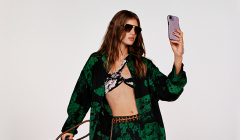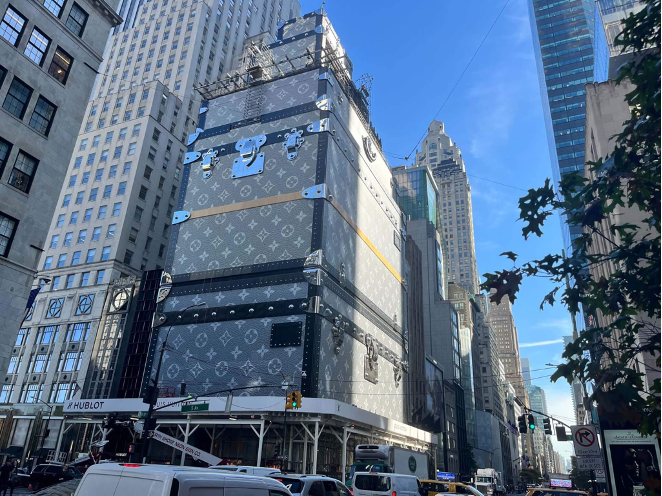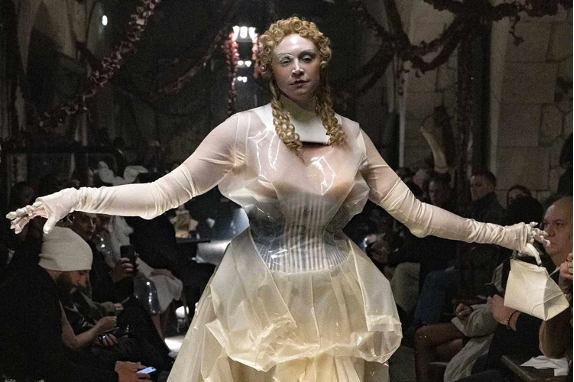
H&M embraces escapism with White Lotus tie up
Launching at the start of London Fashion Week and as the drama’s latest season unfolds, the collection marks iconic cultural moments.

Lessons from the luxury market on being memorable to create lasting connections.

The best gifts in life aren’t material possessions - they’re unforgettable experiences. Thoughtful, exclusive, deeply personal moments hold far more weight than material objects.
And it’s official. Recent research from The University of Texas reports “the basic finding from a lot of experiments is that people derive more happiness from their experiences than from their possessions.” Moments are more memorable and grow richer in time; they open new worlds, create social connections and community.
Luxury marketers understand this better than anyone. Their clientele—ultra-high-net-worth individuals—have the means to buy whatever they want, whenever they want. Price isn’t a deciding factor in purchasing decisions. So, for a brand to command attention, it must offer something superior in both form and function.
Luxury is far more than function. If it were, a Rolex Oyster wouldn’t stand a chance against an Apple Watch, which offers flawless timekeeping alongside a suite of smart features. And yet, given the choice, many opt for Rolex. Why? Because it’s a Rolex. A Rolex on your wrist isn’t simply a watch - it’s a statement. It signals success, appreciation for craftsmanship, and a certain level of taste (debatable!).
Luxury thrives on experiences that money technically can’t buy. The industry has mastered the art of experiential marketing, crafting moments that feel deeply personal and exclusive—whether on grand scale or in intimate, one-on-one settings.
“Ultimate luxury is no longer about outstanding products only, but first and foremost about unique, unforgettable, meaningful experiences in an unlimited quest for pleasure and purpose” explains Sadry Keiser, CMO of Swiss luxury watch Maison, Roger Dubuis. To strengthen the emotional connection between clients and the brand’s avant-garde spirit, Roger Dubuis frequently offers exclusive, adrenaline-charged experiences that money can’t buy. One standout is the P-Zero™ Experience, a collaboration with Pirelli giving supercar owners the chance to test their limits on legendary racetracks worldwide—an exhilarating fusion of high-speed performance and luxury watchmaking.
On a larger scale, Louis Vuitton is a truly remarkable leader turning brand heritage into high-impact statements. Oversized luggage wraps on landmark buildings do more than simply showcase its iconic checkerboard signature—they transform cityscapes into living advertisements, enticing customers into stores with playful yet premium visual storytelling.

Louis Vuitton flagship store in New York using product to pull consumers into store (Image credit: Louis Vuitton).
Aston Martin doesn’t just sell cars; it sells elite lifestyle. Recently redefining what it means to own an exotic car – it has introduced its most ambitious programme ever of curated experiences for car owners and potential clients, promising extraordinary adventures on and off the road – embedding the brand into unforgettable memories.
And in fashion, experiential marketing is second nature. Haute couture shows have long been theatrical spectacles, transporting audiences into the designer’s world. Take Maison Margiela Haute Couture Spring/Summer 2024 by Galliano – the elite inner circle considers this one of the greatest shows ever – pure magic and fantasy: subtly uniting exquisite clothes, location, artful casting, movement layered with the iconic Pat McGrath ‘porcelain doll’ makeup - recently launched as a product in its own right.

Gwendoline Christie closing the Maison Margiela SS24 show by Galliano (image credit: Maison Margiela).
As technology evolves at pace and the distinction between reality and AI increasingly blurs, luxury brands that will thrive will be those who embrace human connection to create truly unique, tangible experiences. This doesn’t mean abandoning tech-driven solutions nor focusing solely on real-world activations. Instead, technology will be leveraged to elevate and enrich the consumer shopping journey.
Luxury fashion retailers have long been tapping into artificial intelligence to personalise shopping experiences. “The luxury retail sector has always led the way in terms of understanding its customer base and now has a much broader range of tools at its disposal.” has said Ian McGarrigle, chairman, World Retail Congress. I couldn’t agree more.
Burberry, a pioneer in digital innovation, uses AI to enhance customer connection, online and in-store with chatbots and interactive apps that provide tailored shopping experiences, blurring the lines between digital convenience and personal touch.
Brands that dare to be bold, creatively ambitious, and deeply personal will win—not just their customers’ attention, but their hearts, minds (and wallets).
As a result of a highly successful growth period, global experiential agency Collaborate has recently promoted Lucy, formerly Head of Growth, to Client Experience Director. In this newly created role Lucy is now leading client relationships across Collaborate’s brand partners includIng Aston Martin, SKY, eBAY, Hyundai, JD Sports, Charlotte Tilbury and Louis Vuitton. She is a creative, results driven marketeer with extensive experience of building successful brands through strategic thinking, planning and cut-through ideas. In marketing leadership roles, Lucy has worked for Red Bull and Goodwood as well as founding start-up brand LUMO Clothing Ltd.
Looks like you need to create a Creativebrief account to perform this action.
Create account Sign inLooks like you need to create a Creativebrief account to perform this action.
Create account Sign in